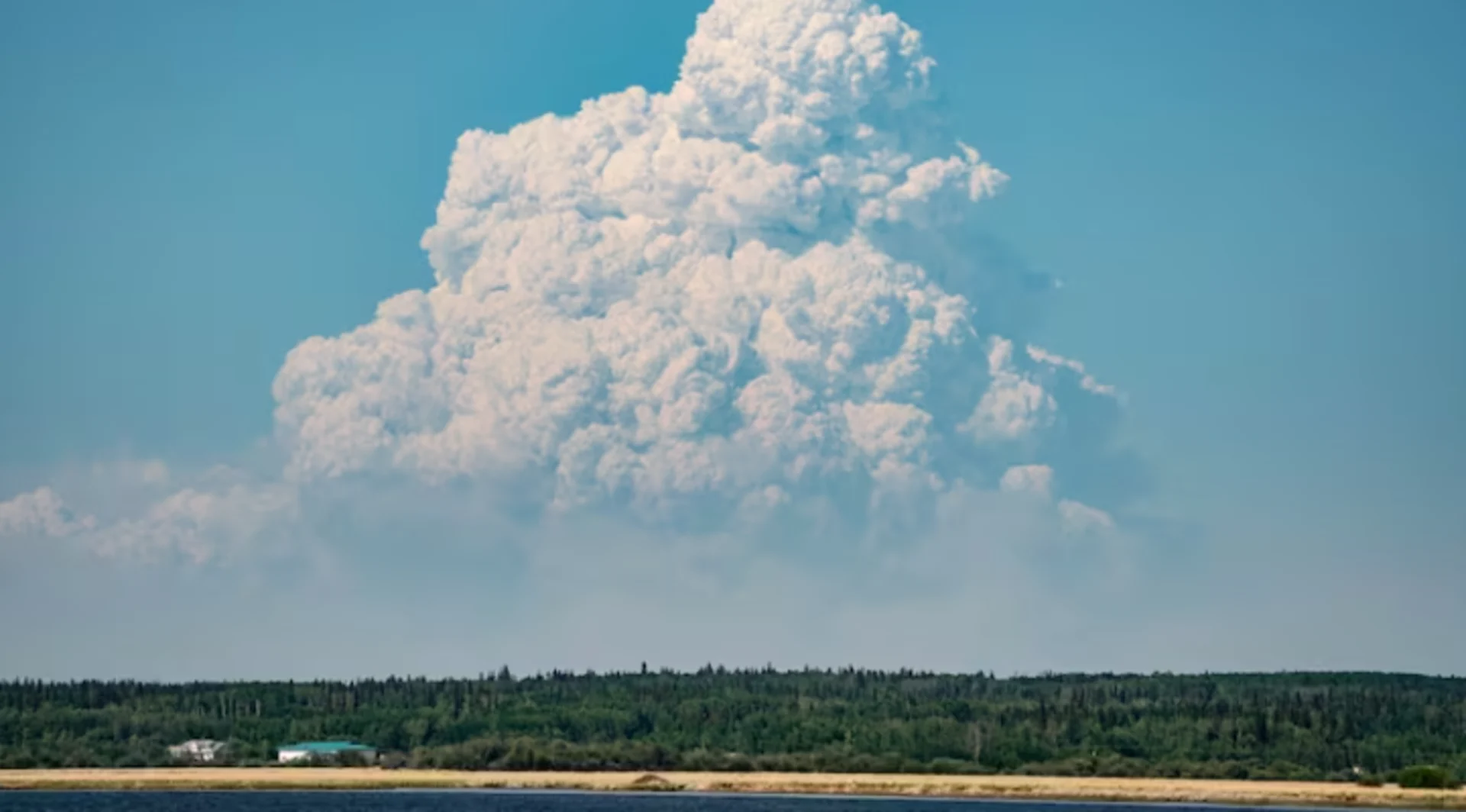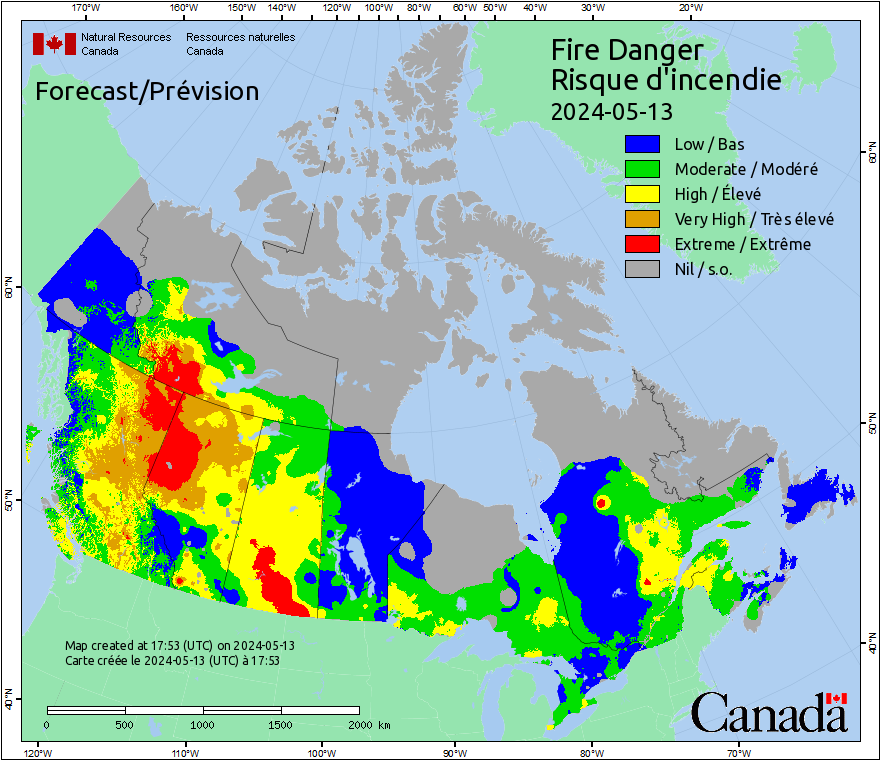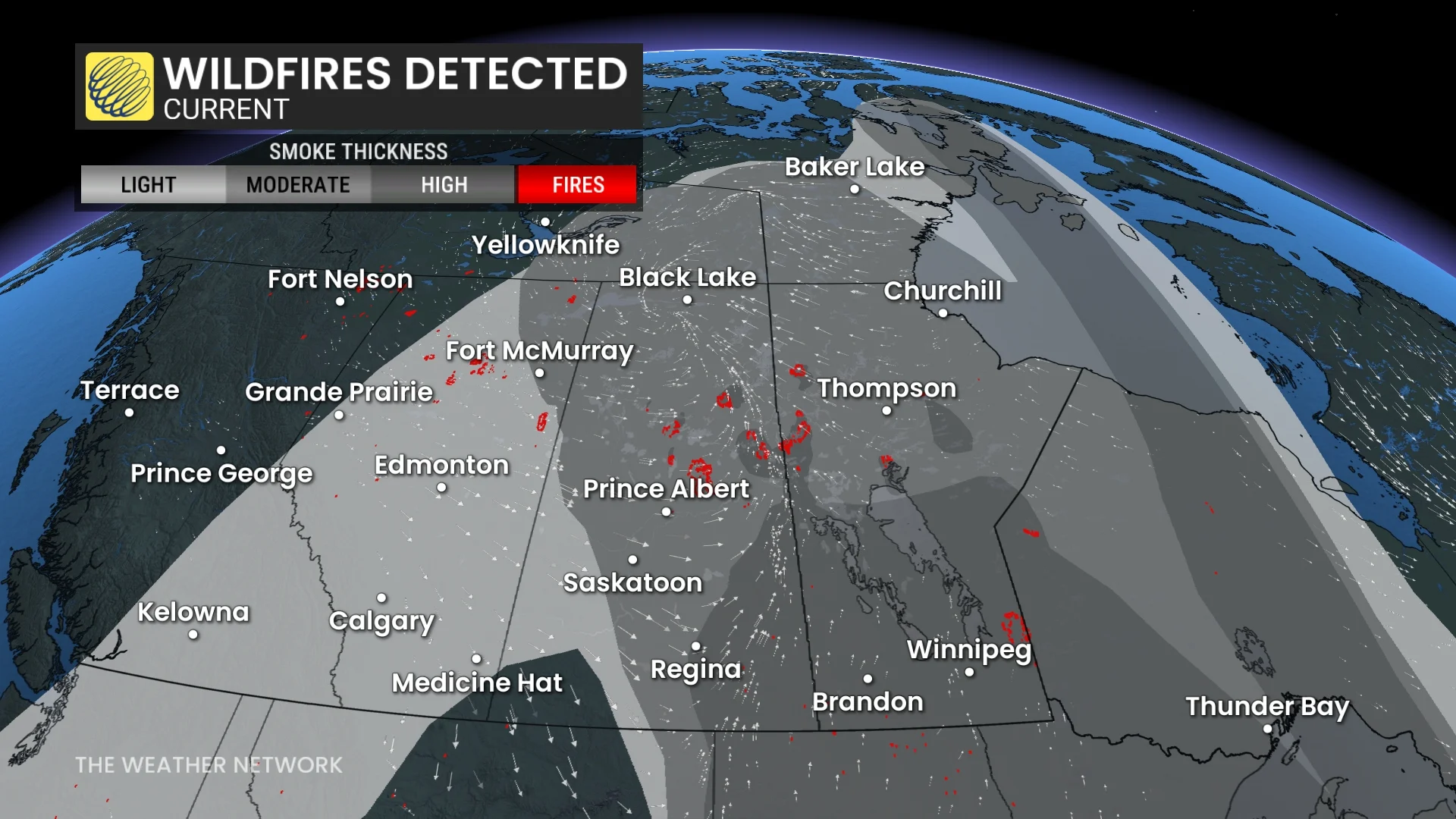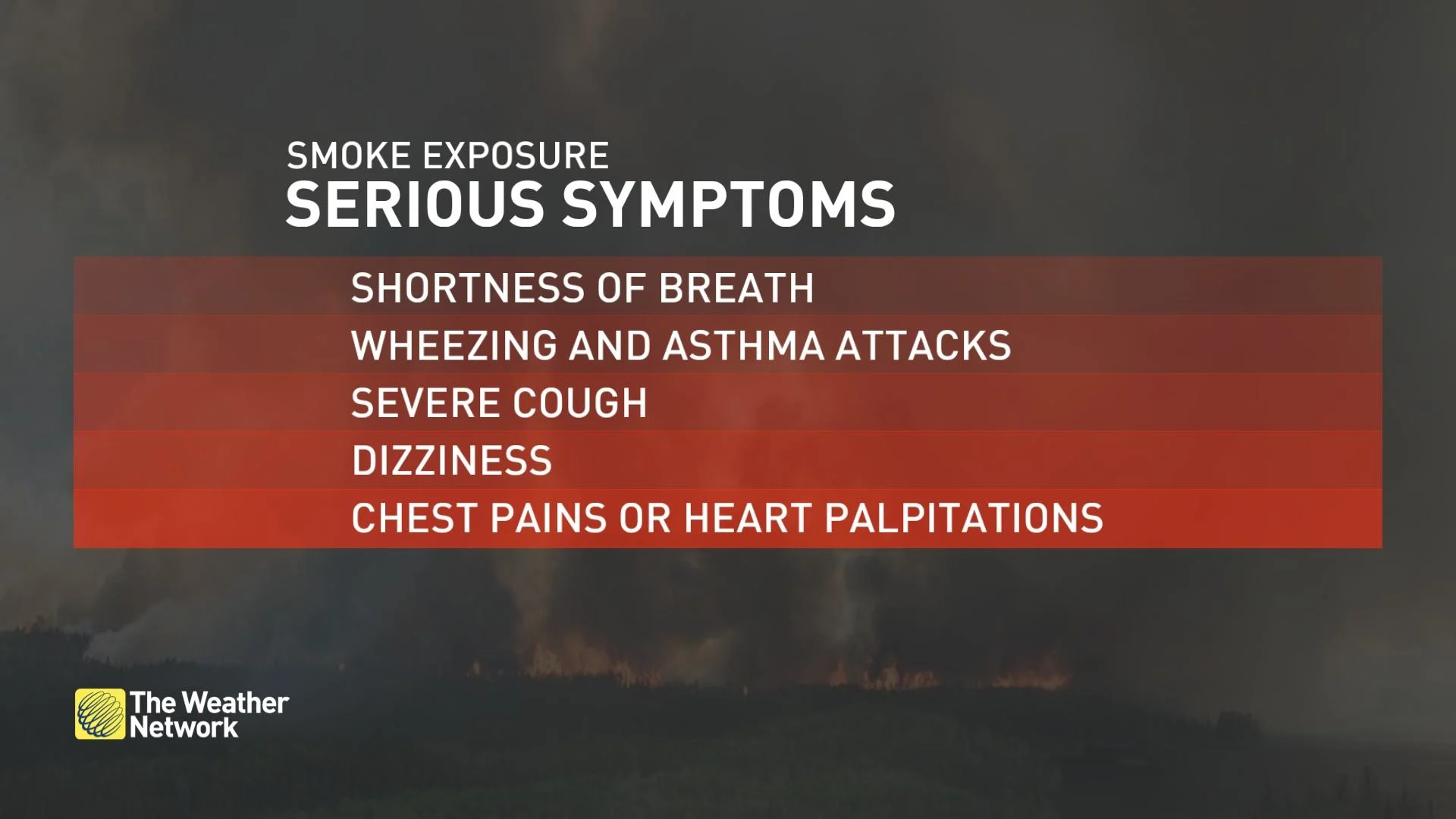
Wildfires have forced 4,500 Albertans from home as of Sunday: AEMA
Yellowhead County Mayor Wade Williams took a moment Sunday morning to express gratitude to some of his constituents.
The county issued two wildfire evacuation orders this week — one for the hamlet of Peers, another for the communities of Mercoal and Robb — that forced people from their homes.
"We know it's very, very tough to be evacuated from your homes," Williams said during the county's wildfire update Sunday. "These measures are absolutely important, and I just want to thank you all for your cooperation."
As of 7:40 p.m. MT Sunday, 49 total wildfires are burning throughout the province, about half of which are deemed out of control, the Alberta Wildfire dashboard shows.
DON'T MISS: The Weather Network's wildfire hub
Fires have triggered eight evacuation orders for various communities, according to the Alberta government's website.
Those orders leave 4,500 Albertans out of their homes due to wildfires as of Sunday morning, an Alberta Emergency Management Agency spokesperson told CBC News. The agency leads and oversees all emergency and disaster response.

Marcel Auger, reeve of the municipal district of Opportunity No. 17, said he was able to fly over Chipewyan Lake to see the extent of the damage to the community. Those residents are just some of many displaced by fire.
"It is looking like we've lost 27 homes or structures in the community," he said in an interview Sunday.
"This includes the seniors' centre, the water treatment plant, the church, and the Bigstone Health Centre, as well as numerous homes."
Auger has been a part of the M.D. for decades — either as an employee, or on council, or now being reeve.
"This is the toughest day I've had, as a leader in this community, to see the devastation on the ground. For these residents, that's everything," he said.
Around 75 people were forced to leave Chipewyan Lake during the evacuation. Auger said it is difficult for many to adjust to being in the neighbouring community of Wabasca.
A Cree translator has been made available at information updates for residents who don't speak English.
Multiple evacuation advisories have also been issued due to wildfires, warning people they have to be prepared to evacuate within a few hours' notice.

Yellowhead County developing re-entry plan
Yellowhead County officials are developing a re-entry plan for its evacuees, although concerns persist about the wildfires in the region, said Albert Bahri, the county's general manager of protective services, during Sunday's update.
The Peers and Mercoal fires, which have each shut down provincial highways in Yellowhead County, are still out of control, the Alberta Wildfire dashboard shows.
Some overnight rain dampened the flames, helping to significantly lower the fire activity, Bahri said.
"We need to make sure that all of those concerns are mitigated, and that we don't pose any risk to the residents in those areas when they return," he said.
Bahri did not specify what the concerns are.
RELATED: Prolific wildfire smoke continues spreading across Canada, U.S.
Smoke causing poor air quality in northern Alberta
Wildfire smoke triggered the national weather agency to issue air quality warning for northeastern Alberta Sunday morning.
Environment and Climate Change Canada (ECCC) issued air quality statements for many northern parts of the province. But people living in the northeast quadrant, from the Wood Buffalo region south to the St. Paul area, are at an elevated risk.
Multiple out-of-control wildfires are burning in that stretch of Alberta, including the group that makes up the Red Earth East complex and a large fire southeast of Conklin, a hamlet within the regional municipality of Wood Buffalo that's about 280 kilometres northeast of Edmonton.
The complex forced the M.D. of Opportunity No. 17 to issue an evacuation order for people living in Red Earth Creek, a hamlet about 350 kilometres northwest of Edmonton.
The ECCC warnings state smoke is causing "very poor" air quality and reduced visibility. It's possible some places may see conditions improved, but heavy smoke is expected through the weekend.

The ECCC air quality health index, which measures how safe the air is to breathe, predicts high to very high risk air in northeastern Alberta communities, like Fort McMurray, through Sunday, but it is expected to improve Monday.
In Cold Lake, however, a city about 240 kilometres northeast of Edmonton near the Alberta-Saskatchewan border, the air quality is forecast to carry a high risk through Monday at least, the index suggests.
The agency's warnings say people should limit their time outdoors, including rescheduling our cancelling sports and other events.
It also says people should be wary of smoke inhalation symptoms, such as headaches, irritation in the eyes, nose or throat, and wheezing and chest pains.
This article, written by Nicholas Frew, was originally published for CBC News on June 1, 2025, with files from Ariel Fournier.
Thumbnail image credit to Kyle Brittain via CBC News.